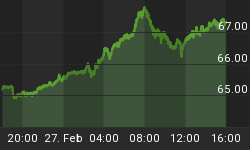Chinese SenseTime Group has tripled its worth in less than a year after a funding round valued it at about $4.5 billion, Reuters reported, making China a major force with which to be reckoned in a global race to the artificial intelligence (AI) finish line.
With the latest funding by e-commerce major Alibaba with $600 million, the total amount makes SenseTime the most valuable AI platform in the world, and a record-breaker in terms of the amount raised in a single funding round by an AI firm.
SenseTime, facial recognition technology developer, claims some 400 clients and partners including Qualcomm, U.S. chipmaker Nvidia and smartphone maker Huawei. The group also partnered with Honda on autonomous driving.
The group said it will use the raised capital to expand its AI platform, advance its technological innovation and open up new business opportunities.
Needless to say, the valuation and success of SenseTime has raised some eyebrows in the U.S., where many believe that China could challenge American for AI dominance—an accomplishment that has far-reaching geopolitical consequences because AI is a decidedly strategic sector.
The U.S. remains the leader in the artificial intelligence space—for now--but China has stepped onto this stage determined to overtake it. China is still behind the U.S. in every area of AI development, including hardware for robots and self-driving cars.
However, ongoing trends indicate that China is attacking the AI throne from several directions.
Recently, the Chinese State Council set itself the goal of matching the U.S. in AI by 2020, eyeing a $150-billion industry. By 2030, it plans to become the key AI “innovation center” for the world.
China also rules the world in terms of internet users, with 750 million out of 1.4 billion people online.
The U.S. advantage right now is bolstered by Chinese minds. There are more Chinese engineers working on AI at U.S. tech companies than in all of China. Chinese students are awarded 10% of all doctorates in the U.S.--and most of them are in science and engineering.
Chinese research submissions to AI conferences have already ramped up significantly, while investment in Chinese AI work and patent filings are also on the rise.
According to a US Office of Science and Technology Policy (OSTP) report, the federal government spent about $1 billion a year in 2015, while the White House says that spending jumped to $3 billion in 2017.
By comparison, one Chinese state has promised to invest $5 billion in AI, and the government of Beijing has committed $2 billion to an AI development park in the city. Related: Why Crypto Millionaires Are Trading Over Skype
China has 50,000 people working in technology-related roles within AI, lagging far behind the United States’ 850,000. However, the Chinese government recently said the country is in a need an additional 5 million AI workers to meet the industry’s needs, indicating that it is ready to push in that direction.
For China, it seems that AI strength is a national priority and all private enterprises are on board. Even if China doesn’t usurp the AI throne, it is likely that US could still lose a large chunk of global market share in terms of both AI development and talent to the Chinese.
According to a report from the American Association for the Advancement of Science, Trump administration’s budget for 2018 aims to cut science and technology research funding across the government by 15 percent.
Jack Clark, who oversees policy at Open AI, an artificial intelligence lab co-founded by Elon Musk, thinks that without action from the White House, the U.S. could lose technological ground to China.
“China already has a meaningful track record — when it says it’s going to pursue something, then it makes it happen,” Clark said.
By Fred Dunkley for Safehaven.com
More Top Reads From Safehaven.com:
















